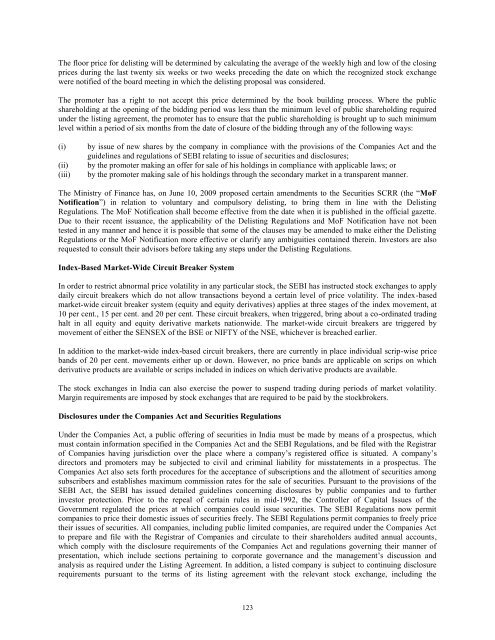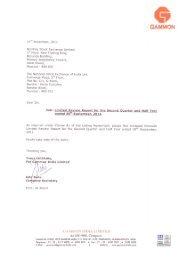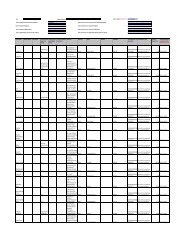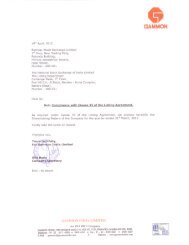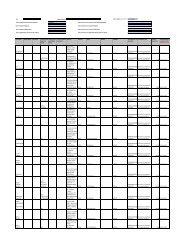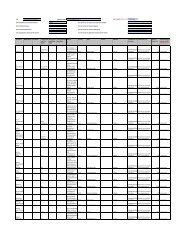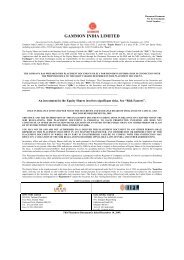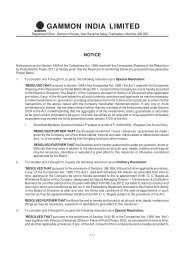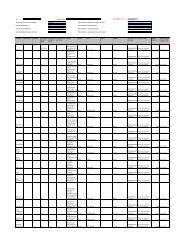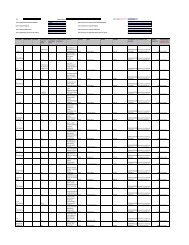GAMMON INDIA LIMITED
GAMMON INDIA LIMITED
GAMMON INDIA LIMITED
Create successful ePaper yourself
Turn your PDF publications into a flip-book with our unique Google optimized e-Paper software.
The floor price for delisting will be determined by calculating the average of the weekly high and low of the closing<br />
prices during the last twenty six weeks or two weeks preceding the date on which the recognized stock exchange<br />
were notified of the board meeting in which the delisting proposal was considered.<br />
The promoter has a right to not accept this price determined by the book building process. Where the public<br />
shareholding at the opening of the bidding period was less than the minimum level of public shareholding required<br />
under the listing agreement, the promoter has to ensure that the public shareholding is brought up to such minimum<br />
level within a period of six months from the date of closure of the bidding through any of the following ways:<br />
(i) by issue of new shares by the company in compliance with the provisions of the Companies Act and the<br />
guidelines and regulations of SEBI relating to issue of securities and disclosures;<br />
(ii) by the promoter making an offer for sale of his holdings in compliance with applicable laws; or<br />
(iii) by the promoter making sale of his holdings through the secondary market in a transparent manner.<br />
The Ministry of Finance has, on June 10, 2009 proposed certain amendments to the Securities SCRR (the ―MoF<br />
Notification‖) in relation to voluntary and compulsory delisting, to bring them in line with the Delisting<br />
Regulations. The MoF Notification shall become effective from the date when it is published in the official gazette.<br />
Due to their recent issuance, the applicability of the Delisting Regulations and MoF Notification have not been<br />
tested in any manner and hence it is possible that some of the clauses may be amended to make either the Delisting<br />
Regulations or the MoF Notification more effective or clarify any ambiguities contained therein. Investors are also<br />
requested to consult their advisors before taking any steps under the Delisting Regulations.<br />
Index-Based Market-Wide Circuit Breaker System<br />
In order to restrict abnormal price volatility in any particular stock, the SEBI has instructed stock exchanges to apply<br />
daily circuit breakers which do not allow transactions beyond a certain level of price volatility. The index-based<br />
market-wide circuit breaker system (equity and equity derivatives) applies at three stages of the index movement, at<br />
10 per cent., 15 per cent. and 20 per cent. These circuit breakers, when triggered, bring about a co-ordinated trading<br />
halt in all equity and equity derivative markets nationwide. The market-wide circuit breakers are triggered by<br />
movement of either the SENSEX of the BSE or NIFTY of the NSE, whichever is breached earlier.<br />
In addition to the market-wide index-based circuit breakers, there are currently in place individual scrip-wise price<br />
bands of 20 per cent. movements either up or down. However, no price bands are applicable on scrips on which<br />
derivative products are available or scrips included in indices on which derivative products are available.<br />
The stock exchanges in India can also exercise the power to suspend trading during periods of market volatility.<br />
Margin requirements are imposed by stock exchanges that are required to be paid by the stockbrokers.<br />
Disclosures under the Companies Act and Securities Regulations<br />
Under the Companies Act, a public offering of securities in India must be made by means of a prospectus, which<br />
must contain information specified in the Companies Act and the SEBI Regulations, and be filed with the Registrar<br />
of Companies having jurisdiction over the place where a company‘s registered office is situated. A company‘s<br />
directors and promoters may be subjected to civil and criminal liability for misstatements in a prospectus. The<br />
Companies Act also sets forth procedures for the acceptance of subscriptions and the allotment of securities among<br />
subscribers and establishes maximum commission rates for the sale of securities. Pursuant to the provisions of the<br />
SEBI Act, the SEBI has issued detailed guidelines concerning disclosures by public companies and to further<br />
investor protection. Prior to the repeal of certain rules in mid-1992, the Controller of Capital Issues of the<br />
Government regulated the prices at which companies could issue securities. The SEBI Regulations now permit<br />
companies to price their domestic issues of securities freely. The SEBI Regulations permit companies to freely price<br />
their issues of securities. All companies, including public limited companies, are required under the Companies Act<br />
to prepare and file with the Registrar of Companies and circulate to their shareholders audited annual accounts,<br />
which comply with the disclosure requirements of the Companies Act and regulations governing their manner of<br />
presentation, which include sections pertaining to corporate governance and the management‘s discussion and<br />
analysis as required under the Listing Agreement. In addition, a listed company is subject to continuing disclosure<br />
requirements pursuant to the terms of its listing agreement with the relevant stock exchange, including the<br />
123


